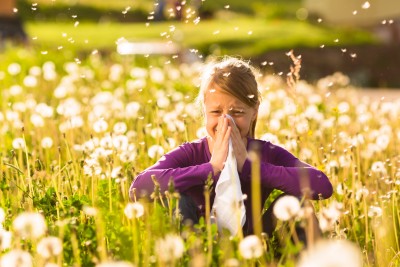 It’s finally springtime in Pittsburgh! As we welcome sunshine and warmer temperatures, we also say hello to the time of year that many people dread – allergy season.
It’s finally springtime in Pittsburgh! As we welcome sunshine and warmer temperatures, we also say hello to the time of year that many people dread – allergy season.
Seasonal allergies are a common complaint among my patients. Local news is reporting that allergy season is going to be worse this year than past years. It’s hard to say just how severe this year’s allergy season will be, but we can count on pollen levels getting high very soon. While I certainly can’t predict the severity of this year’s season, I can help you prepare and fight off unpleasant symptoms.
Before we explore some of the things that you can do to prevent and control your allergies, it’s important to understand that each of us has an allergy threshold. In life, we are exposed to different types of allergens. Allergens in our environment and our food contribute to the total allergen load that our bodies can handle at any given point in time. Some of these allergens, such as those found in food and cosmetics are within our control – as in, we can avoid them. Other allergens, such as those found in air and nature are much more difficult to avoid.
This is particularly challenging in Pittsburgh, where we consistently rank for low air quality. Smog, the ozone layer and chemicals in the air all fall into the “difficult-to-avoid” category of allergens.
Minimizing exposure to the allergens that we are able to avoid lessens the total allergen load on our bodies and keeps us further from our allergy threshold. The further we are from our allergy threshold when are exposed to environmental allergens that we cannot avoid means that our bodies are better positioned to deal with those allergens without producing the bothersome symptoms that we commonly associate with allergy season.
That said, the best time to actually start preparing for allergy season is in January. In the past, we’ve talked about how food allergies are on the rise. Food allergies relate to seasonal allergies in that they increase the total allergen load on the body and bring you closer to your allergen threshold. People have food allergies more than they used to. It is important to identify them, because they relate to seasonal allergies. When you eat the food allergen, your body mounts an immune response and causes chemicals to be released into the body. One of these chemicals is histamine, which plays an important role in the body. However, when this kind of immune response happens on a continual basis (most likely because you are often eating the food allergen), histamine begins to irritate the digestive track, respiratory track, skin and cardiovascular system. Every time you eat that food, the body will continue to produce those chemicals, causing unpleasant and annoying symptoms, such as: phlegm, runny nose, itchy eyes and fatigue.
You’ll notice that the symptoms that we listed above are all part of seasonal allergies. The more you are eating those allergens, the more you are crossing your allergic threshold. It’s really good to identify any and all food allergens (via an elimination diet or food allergy test) and avoid those foods in order to reduce your total allergen load.
While we can’t do much to control the air quality, we can control what goes in our mouth in order to lower our overall allergen load.
Outside of the identifying food allergens, which is important for several reasons, there are a number of additional steps that you can take to prevent and stop seasonal allergies in their tracks:
- Use an air filter in your home
- Spend time indoors with the windows closed to keep pollen out when the pollen count is high
- Wash your bedding in hot water at least once a week, to minimize allergy triggers
- Keep your house as dust free as possible (mopping, dusting as often as you can)
- Shower and change cloths after spending time outside in order to remove dust, pollen and dander
- Use a dehumidifier in your basement to decrease dampness and mold, making your house less allergic
- Avoid perfume and personal care products that contain harmful and irritating chemicals that add to your allergen load
Seasonal allergies are no walk in the park, but there is hope. Taking steps to reduce your overall allergen load will help you get your seasonal allergies under control so that you can enjoy the beautiful springtime sunshine.






